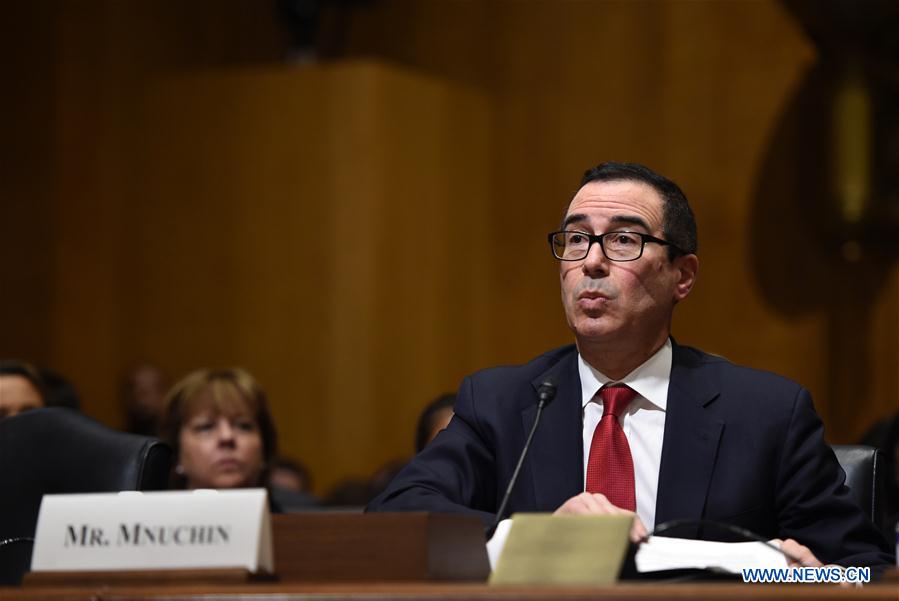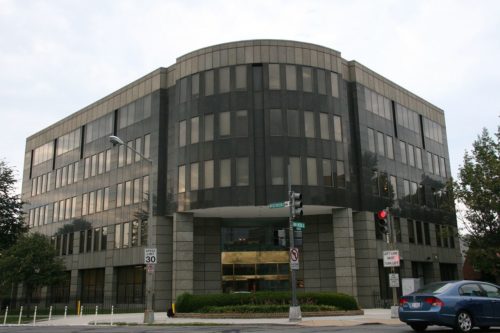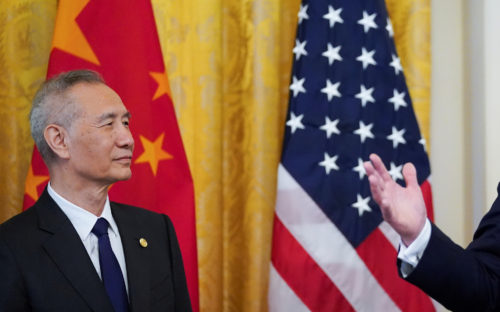Trade war, day 13: U.S. gives China cold shoulder at G20 as trade relations freeze over

Nearly two weeks since the first round of $34 billion tit-for-tat tariffs went into effect (Access paywall), the U.S. and China seem to both be waiting for the other to make a move in the trade war. What activity exists is happening largely around the edges, as no direct negotiations or major concessions have been reported:
- The U.S. Trade Representative alleges that its trading partners’ retaliatory tariffs are “designed to punish American workers, farmers and companies” in a way that violates WTO rules, Bloomberg reports (paywall). The charges are odd coming from the Trump administration, which has called the WTO ineffective and suggested withdrawing from the organization.
- White House economic adviser Larry Kudlow is convinced that Xi Jinping “doesn’t intend to follow through” on the trade war, and that his current tactics are aimed at “holding up the game,” the SCMP reports.
- Neither side seems too pressed to resolve the dispute. U.S. Treasury Secretary Steven Mnuchin will not hold formal meetings with Chinese officials during the upcoming G20 summit, instead opting to discuss the international dispute in “group sessions, dinners and informal settings,” according to the SCMP.
- Beijing may see little advantage in engaging with the Trump administration. Bill Bishop, writer of the Sinocism newsletter and a sharp observer of U.S.-China relations, says he believes that “Xi and his team have come to the conclusion that President Trump’s goal is to ‘destroy’ China,” thus “there is no point in making any concessions to him.”
- The continued mixed signals from Washington need deciphering, so Beijing has created an alliance between two Chinese think tanks to better understand U.S. laws and policy, the SCMP reports.
- China may have an edge in the trade war among consumers. A recent survey found that 54 percent of respondents would “probably” or “definitely” stop buying U.S.-branded goods in the event of a prolonged trade war, according to the Financial Times (paywall).
- In terms of policy, Renmin University researchers are confident China can employ dual tactics of strategic partnership with non-U.S. trade partners and encouraging domestic investment and consumption, the SCMP reports. A recent tweet from Liz Abramowicz highlights that the dollar is “the strongest versus the Chinese yuan in more than a year,” which substantially dilutes the effects of American tariffs on Chinese goods.
Despite the heat of trade tensions, many Chinese and American companies remain eager to take advantage of money-making cross-border opportunities.
- Chinese venture capitalists invested $2.4 billion in Silicon Valley between January and May this year, setting them up to surpass the record set last year, the Financial Times reports (paywall). While increased scrutiny on Chinese deals has blocked large investments from going through, most smaller investments have not merited the American government’s attention.
- “Demand is still very high for biotech investments and the level of competition among Chinese companies for U.S. biotech licenses is very strong,” according to Beijing-based investment adviser Chen Bingyu.
- Google launched its first WeChat mini program, as part of its ongoing work to expand (Access paywall) its presence in the Chinese market. The game — a drawing app called Guess My Sketch — is now active in WeChat’s mini program marketplace, which has 500 million monthly users, TechCrunch reports.
- Apple is storing Chinese iCloud users’ data on the state-owned servers of China Telecom to comply with regulations, the BBC reports. Joshua Rosenzweig, deputy regional director of research at Amnesty International’s office in Hong Kong, voiced concern for the policy, stating that the move “really undermines Apple’s claim that it takes its customers’ privacy seriously. Apple shouldn’t let its thirst for profits put its Chinese users at risk,” he said.
- Blackstone president Jonathan Gray is one of very few optimists in terms of resolving the trade war, but conceded that solutions would not be immediate, stating, “The U.S. and China both recognize real risks to an escalated trade war,” according to CNBC.
Previously in The China Project’s trade war coverage:





